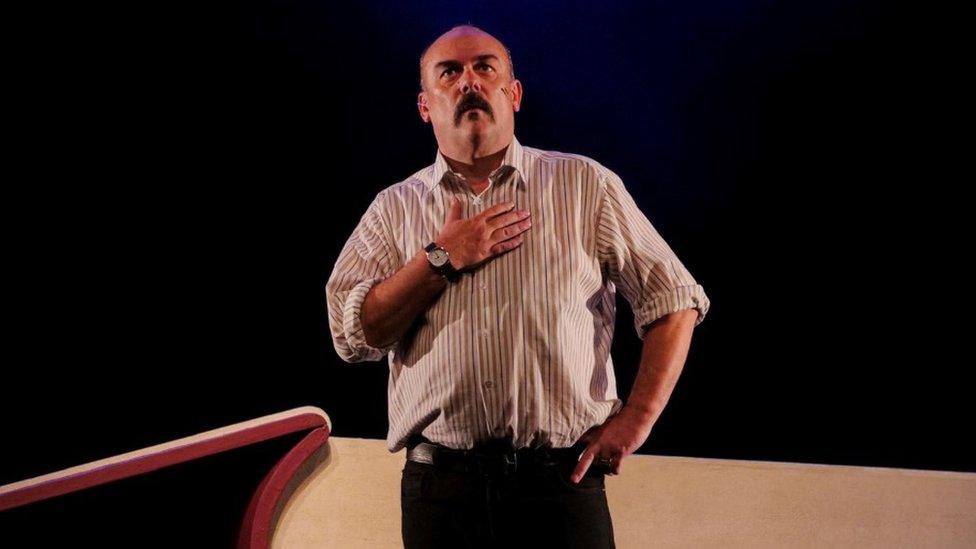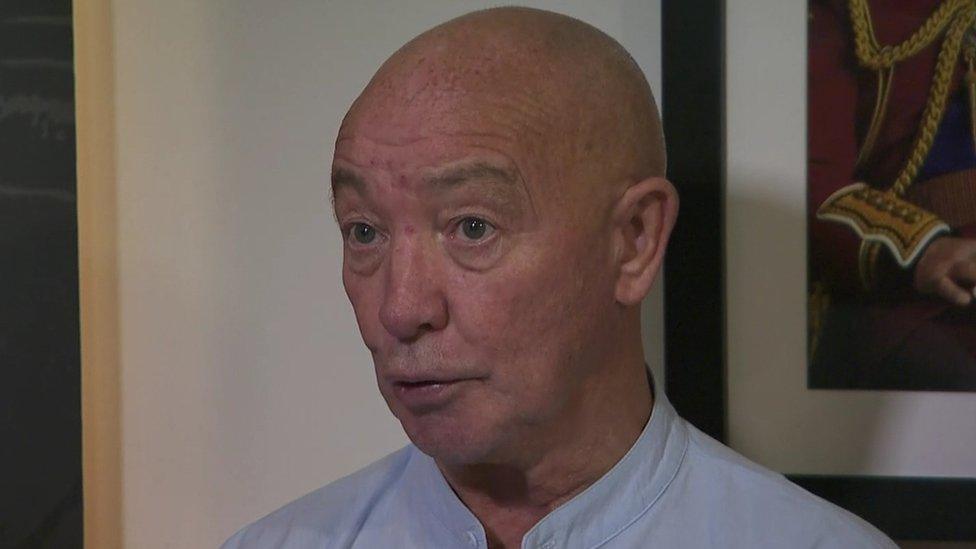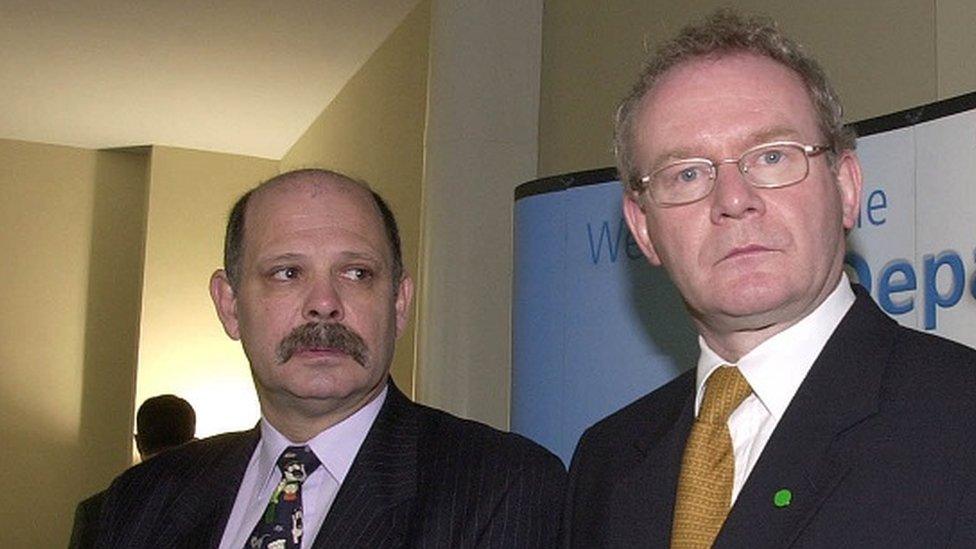David Ervine: New play marks life of former unionist leader
- Published

Actor Paul Garret plays the former Progressive Unionist Party leader in The Man Who Swallowed a Dictionary
"What would David Ervine do?"
It's a question that's been asked many times.
What would the late leader of the Progressive Unionist Party (PUP), who died in 2007, think of post-Brexit Northern Ireland politics?
Amid continuing unionist concerns about the Windsor Framework and Northern Ireland's place in the UK, there has been an ongoing debate about who speaks for the unionist working-class people - people like those represented by Mr Ervine.
That conversation is even more relevant with the recent hit play The Man Who Swallowed a Dictionary, which maps Ervine's life from his youth, to joining paramilitary organisation the Ulster Volunteer Force (UVF), his conviction for an attempted bombing, and transition into a political leader.

David Ervine, pictured in 1998, died in 2007 at the age of 53
"I knew Davy from I was 19 and Davy was 20. He was a very, very genuine person," said playwright Robert Niblock.
"When he went into Long Kesh [prison], I didn't see him for a couple of years. Then I met up with him again, and he had this bit between his teeth that he wanted to do something positive."
Mr Niblock knew the former unionist leader from sharing both the same east Belfast streets and the same prison experience.
Both men were convicted loyalist paramilitaries in the 1970s.

Robert Niblock, who knew David Ervine, has written the play
He said the success of Mr Ervine's charismatic and popular leadership was his ability to move easily from those streets to Stormont and beyond.
"He could sit [here] in The Raven Club with, for instance the 'plebs', and drink a pint, go to the bookies across the road, watch the football, go to the Glens match.
"But, he could also walk to Stormont, he could go to Washington and mix and not feel out of place."
Protestant playwrights
As well as the conversation around Mr Ervine's absence from politics, the success of the play has provoked another talking point about the role of the working-class unionist writer.
Mr Niblock praised the works of a long litany of Protestant playwrights, from Sam Thompson, Stewart Parker and Graham Reid, through to Marie Jones and Stacy Craig.
Dr Mark Phelan is an expert in Irish drama at Queen's University Belfast.
Despite the numerous contributions by working-class Protestants, he said some unionist politicians have written off the art.

Dr Mark Phelan contests recent comments from some unionists
"You'll have DUP representatives like William Humphrey recently saying that... the theatre has nothing to offer working-class Protestants," he told The View.
"That speaks to maybe an ignorance there or an unawareness of a long tradition, which actually just flies in the face of the facts."
'Marginalised'
Dr Phelan said it is not just politicians who don't know about the tradition of working-class Protestant and unionist writers.
He recounts the story of a conversation between the well-known Rathcoole playwright Gary Mitchell and his teacher.
"When he went to speak to his careers teacher at school and said he wanted to be a writer, his education careers teacher told him that that was a job for Catholics and homosexuals. He said: 'Fruits and fenians.'
"And yet, Gary is one of our most important voices and also places centre stage a community that is often marginalised and maligned."

The play has received praised from all sides of the community in Northern Ireland, Mr Niblock claims
Dr Phelan said, as someone from a Catholic nationalist background, those playwrights have opened out a new way of thinking.
"I have learned more about my own sectarianism and my own myopic views about politics here through watching plays, written by Gary Mitchell set in the loyalist community, where I realise that actually, a loyalist isn't a single identity," he admitted.
"There's a huge complexity to those positions and similarly with Robert's play... I learned so much."
Cross-community audience
Among those who have watched The Man Who Swallowed a Dictionary is Laurence McKeown, an IRA hunger striker and a playwright, like Mr Niblock.
Mr Niblock said attendees have ranged from republicans to ex-prisoners and politicians, all of whom have praised the play.
"I haven't heard one bad word yet," Mr Niblock added.
"I don't mean that in a big-headed way that it's a great play, but they're saying to me: 'That was good'."
You can watch Mark Carruthers' full interview with Robert Niblock and Dr Mark Phelan on The View on BBC iPlayer.
Related topics
- Published29 December 2021
